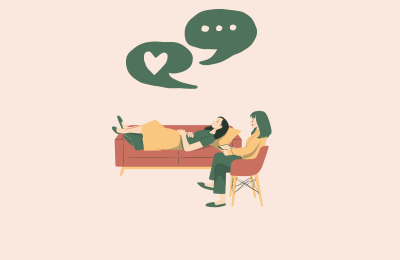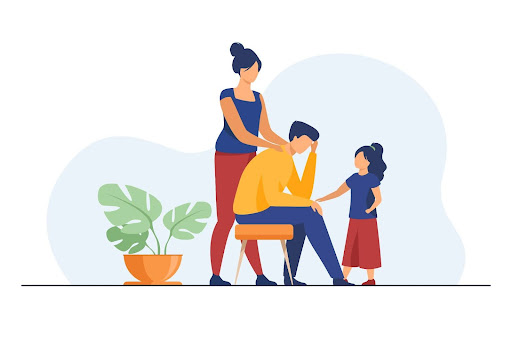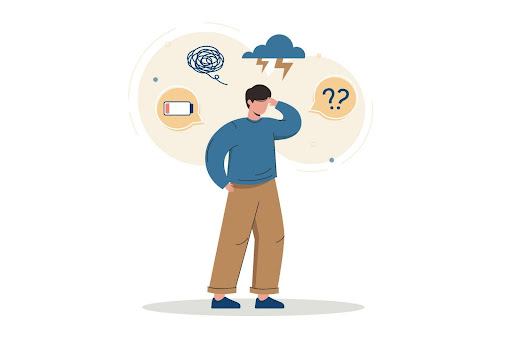In a world that rarely slows down, taking care of our mental health can feel like something we’ll “get to later.” Between work, family, and constant commitments, it’s easy to push emotional well-being to the bottom of the to-do list.
Every one of us experiences ups and downs—sometimes daily, other times unexpectedly. Some days, it’s just stress or self-doubt. Other times, it can be heavier—anxiety that won’t ease, grief that lingers, or memories that resurface when we least expect them. In times like these, it’s important to remind ourselves that mental health support in India is available in many forms. Whether through a trusted friend, a crisis counselor, or long-term therapy, help can be found.

Imagine a rough day, a late-night worry spiral, or feeling “not enough.” You may reach out to a friend with a simple, “Hey, do you have a minute?” or open up to a family member. These small moments matter deeply.
Talking with someone who truly listens—without judgment or rushing to fix things—can shift something inside. It’s like exhaling after holding your breath for too long. Sometimes, that’s all we need to start moving forward.
Reaching out isn’t a weakness. It’s courage in its purest form—the courage to say, “I’m human, and I need help.”

There are times when feelings go beyond what a heart-to-heart with a friend can fix. Panic, hopelessness, or thoughts of self-harm signal the need for professional mental health support in India. These moments call for immediate care—not because you’re broken, but because you deserve safety and relief.
If you’re in India and need help right now, 24/7 confidential support is available:
Short-term counselling can stabilize things when life feels chaotic. Even a few sessions can make a meaningful difference, highlighting the benefits of mental health counselling in helping you regain balance and perspective.

Once the immediate crisis has passed, many people find healing through long-term therapy. This is where real transformation happens—not overnight, but gradually, as you begin to understand yourself more deeply.
Therapy isn’t just about “fixing” what’s wrong. It’s about exploring the underlying patterns, history, and emotional threads that shape your life. With a skilled mental health therapist, you can learn to process pain, set boundaries, and rediscover parts of yourself that may have gone quiet.
There are various types of therapy for mental health, including:
Finding a therapist who feels like a good fit is crucial—someone you can trust and be honest with. Over time, therapy can help you build emotional strength and lasting peace.
If you’re ready to begin your therapy journey but aren’t sure where to start, consider browsing The Live Love Laugh Foundation’s Directory of Mental Health Professionals. It’s a carefully curated resource of verified psychologists, counselors, and therapists across India.
Disclaimer: The Live Love Laugh Foundation serves as a platform to facilitate access to mental health professionals. We do not employ, engage, or endorse any therapists listed, nor do we assume responsibility for the services provided.

Every mental health journey is personal. Some people start with counselling and later move into therapy; others rely on community support or a mix of all three. What matters is that your path feels authentic to you.
There’s still stigma around mental health problems—a quiet whisper that says, “You should handle this yourself.” But seeking help isn’t a weakness; it’s a sign that you care about your well-being enough to invest in it.
Healing isn’t linear. Some days you’ll feel strong; other days you’ll just want to rest. Both are okay.
1. What’s the difference between counseling and therapy?
Counseling focuses on immediate challenges and coping tools, while therapy goes deeper, addressing patterns and long-term emotional growth.
2. When should I start therapy?
If emotions interfere with daily life, relationships, sleep, or work, it’s a good time to reach out.
3. Does therapy mean I have a mental illness?
Not at all. Therapy is for anyone wanting to understand themselves better or live more intentionally.
4. Is online therapy effective?
Yes, virtual sessions are accessible and often more comfortable for many people.
5. What if I can’t afford therapy?
Look for community clinics, nonprofits, or sliding-scale programs, where therapy is offered at a lower cost to students and individuals from marginalized sections of society—there’s help at every price point.
Healing unfolds quietly, in moments of honesty and care. Whether confiding in a friend, talking to a counselor, or sitting across from a mental health therapist for the first time, every step is toward wholeness.
Remember: you are not alone. Support is out there, waiting for you to reach for it. With time, patience, and compassion, you can find the help you need.